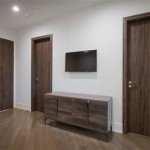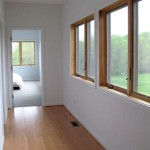Wood Interior Walls: A Timeless and Versatile Choice
Wood interior walls have been a staple in design for centuries, offering a natural, warm, and inviting aesthetic. Their timeless appeal transcends trends and provides a sense of warmth and sophistication to any space. From traditional to contemporary, wood walls can be incorporated into various design styles, adding depth, texture, and character to homes and commercial spaces alike. Aside from aesthetics, wood walls offer several practical benefits, including improved acoustics, insulation, and durability.
Aesthetic Advantages of Wood Interior Walls
Wood interior walls offer a unique aesthetic that is both timeless and versatile. The natural grain patterns and variations in color create a sense of warmth and character that is difficult to replicate with other materials. Wood can be stained, painted, or left natural to complement a variety of design styles. The richness and depth of wood add a sense of sophistication and elegance to any space, making it a popular choice for both residential and commercial interiors.
Further, wood walls can create different visual effects depending on the type of wood used and the installation method. For instance, shiplap walls offer a rustic and farmhouse aesthetic, while paneled walls create a more formal and traditional look. The use of different wood species, such as oak, walnut, pine, or cherry, can influence the overall color and texture of the walls, adding further customization options.
Practical Benefits of Wood Interior Walls
Beyond aesthetics, wood interior walls offer numerous practical benefits. Wood is a naturally sound-absorbing material, making it an excellent choice for improving acoustics in noisy spaces such as living rooms, bedrooms, and even offices. This is particularly relevant in open-plan spaces where noise can easily travel. Wood also boasts excellent insulation properties, helping to regulate temperature and reduce energy consumption. Wood walls can also be an environmentally friendly choice, as wood is a renewable resource.
Furthermore, wood walls are durable and resistant to wear and tear, making them an ideal choice for high-traffic areas. They can withstand scratches, dents, and even moisture, making them a long-lasting and low-maintenance option. With proper care and maintenance, wood walls can last for generations, adding value and longevity to any property.
Considerations for Wood Interior Walls
While wood interior walls offer numerous benefits, there are some considerations to keep in mind before making a decision. First, the cost of installation can vary significantly depending on the type of wood chosen, the complexity of the project, and the labor costs in the area. It's crucial to obtain quotes from multiple contractors and compare prices to ensure that the project fits within the budget.
Second, wood can be susceptible to damage from moisture and insects. It's essential to choose wood that is treated with appropriate finishes to prevent damage from moisture and ensure long-lasting beauty. Regularly checking for signs of damage and taking preventive measures, such as using moisture barriers and pest control treatments, is crucial for maintaining the integrity of the wood walls.
Lastly, upkeep is essential for maintaining the beauty of wood walls. Regular cleaning and polishing are necessary to preserve the wood's natural shine and protect it from dust and grime. While wood walls are generally low-maintenance, proper care and attention can help them maintain their beauty and longevity for years to come.

How A Wood Wall Can Influence Space S Decor And Ambiance

Great Paneling Wood Options For Your Log Home Renovation 4 Types

Interior Wood Siding

Salvaged Wood Interior Walls Insteading

Warmth And Texture 10 Unique Living Room Wood Accent Walls Decoist

Wooden Wall Designs And Panels For Bedroom Designcafe

Wood On The Walls Mountain Living

Wood On The Walls Mountain Living

Apartment At Bow Quarter Studio Verve Architects Wood Slat Wall Interior Timber Walls

Interior Pine Paneling Care Siding Maintenance








